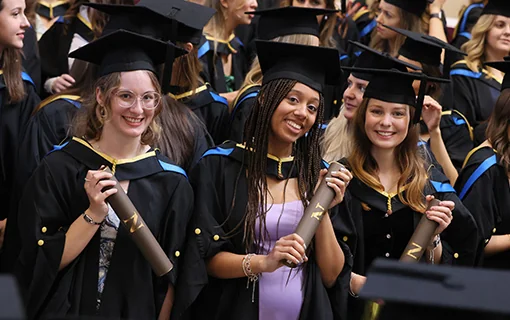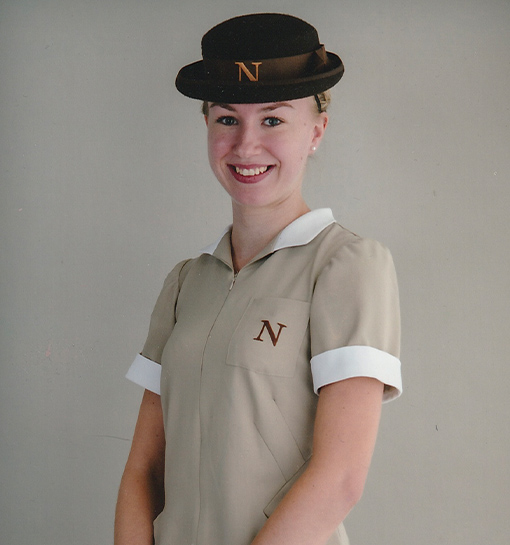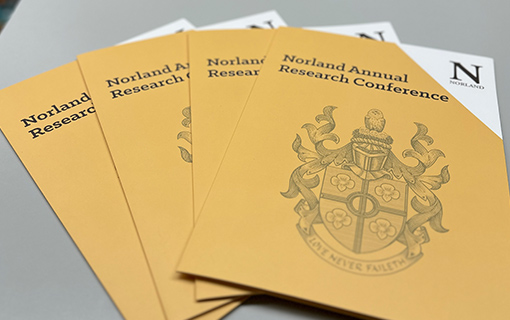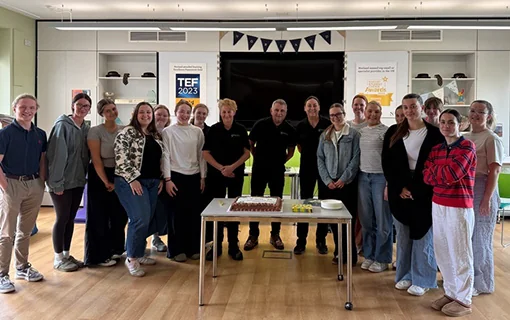130 careers spotlight: Margaret celebrates “an extraordinary life” and career as a Norlander
13 August 2024

In celebration of Norland’s 130th anniversary as the world’s first early childhood education and care training establishment, we are showcasing the diversity of careers open to our qualified graduates.
It was an article in a London newspaper entitled ‘N is for Nanny’ that first inspired 14-year-old Margaret to become a Norland Nanny. She continued to collect everything she could find about Norland (she still has them all) and, aged 17, she applied for a place. In May 1959, she began her training at the Norland Nursery Training College, then situated in Chislehurst, Kent. After gaining her certificate as a full-time nanny, she set off for America where many interesting jobs awaited her— including working with newborns, acting as director of the Childcare Centre at the New York World’s Fair, and teaching at the National Child Research Centre in Washington DC. In 1965, she was invited by President Johnson to set up one of five experimental nursery schools supporting children from deprived areas, as part of his War on Poverty programme. The great success of these schools has proved permanent, and the project became known as Head Start and continues to this day in almost every town across America.
After marrying an international journalist, and with three children, Margaret lived in many parts of America before being posted to Japan for two years, and then to the then Soviet Union for five years — where in both places she occasionally worked as a teacher.
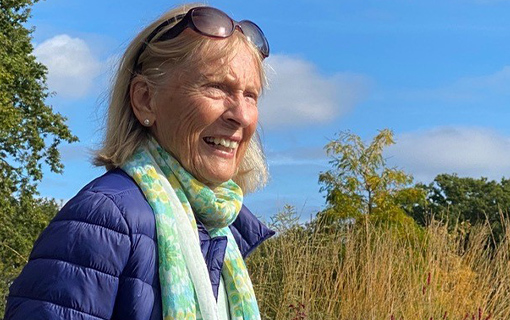
Reflecting on her Norland training
“I remember my college days so clearly,” says Margaret. “There were ten in my cohort, and I am still in touch with some. We were taught a wide range of household skills, from sewing baby clothes with invisible stitches to spotlessly cleaning the nurseries every morning. On one inspection, when a speck of dust was found at the back of the sink, we had to do the whole room over again!”
“Attending Norland was a truly dedicated job,” says Margaret. “We had the expected child welfare, anatomy, sewing classes with homework. But we also had cookery and laundry duties on monthly rotas. Cookery involved making menus and preparing all the food for the nurseries and staff! Since there were children living at the college, laundry duty was always a challenge as there were no modern facilities. Then there was the ironing. This was done with a flat iron, heated on a stove (another ‘just in case you get a job and electricity fails’ — Norlanders had to be ready for anything!). Alas, with no temperature gauge, too often there was sizzling when ironing a child’s nylon garment.”
The college had a nursery school for local children, and the second term was divided between placements in state and private schools. Several young children lived on the premises full time, usually because their parents’ worked in London-based embassies. Other children would board for one to two months. To be given a charge meant working around-the-clock. Margaret explains: “We slept in the nurseries with the children so that we could comfort them if they woke during the night.”
Wellbeing, safety and placements – just as important then as they are now
The wellbeing, safety and security of children were at the centre of their studies, but Margaret also remembers her free time as a student. “If we got a Saturday night pass (still home by 11pm), we’d go to the Chislehurst Caves for the jazz and dancing. Or, on our day off, some of us would go to London to see a matinee or get our hair done by students, for half a crown.”
The Norland training programme included a three-month hospital placement in the third term. “I went to Balham Hospital and spent one month each on the sick children’s ward, a maternity ward and with premature babies.”
“Choosing a job was an exciting event as there were so many applications — from actors to aristocracy and high-ranking public figures. For her final probationary year in 1962, Margaret worked for a high-profile family based in Wiltshire, with whom she has kept in touch. “I loved this family dearly and have watched my two charges grow up. I had almost sole responsibility for them since their mother had to care for her husband. But we had a lot of fun, especially when they entered me as Malmesbury’s Carnival Queen. When, after two years, I decided to leave to go to America, we all laughed at the town’s bulletin boards which stated ‘Queen Abdicates’.”
Margaret's career as a Norland Nanny after qualifying
Margaret’s first jobs in the US were as a temporary nanny and then maternity nurse in New York City. After her stint at the World’s Fair, she was invited to Baltimore and trained as a children’s presenter for a popular TV show called Romper Room, with the idea that she would return home and set up the programme in the UK. However, marriage came along and changed those plans. She and her Australian husband moved to Washington DC and it was then that she obtained a job in President Johnson’s War on Poverty programme.
“My school was located in a church building in an area with the third-highest crime rate in the US. I had three local untrained staff members and 80 children, aged four and five—40 in the morning and 40 in the afternoon”
Margaret approached this challenging role with the same passion and dignity instilled in her during her Norland training. She worked diligently to nurture the children and help them reach their developmental milestones .She also started a nursery school for mothers once a week in the evenings. Here the mums learned songs, games and art crafts that enabled them to share in their children’s learning experiences.
“I was never afraid to go into the crime area each day,” explained Margaret, “even though it was often scary. When my husband asked the mothers why I had been accepted, they replied ‘word had been sent around the neighbourhood’ that ‘Margaret has come to love our children. No one must touch her.’” For Margaret, this was the moment she realised the impact she had on the community, with Norland’s founding motto ‘Love Never Faileth’ held firmly in her mind.
Living and working in the US and the Soviet Union
Margaret went on to teach at the National Child Research Center in the capital before moving to Japan for two years, due to her husband’s work. Then back to America before setting off for five years to their next home in Moscow during the Cold War era, where she occasionally helped at the British Embassy Nursery school.
While in the Soviet Union, Margaret re-discovered her love for dancing. She studied Russian folk dancing but her true passion was classical ballet, which would become a significant part of her next career. She studied ballet daily with a dancer and teacher from the Bolshoi Ballet between 1976 and 1981 and began writing reviews on the Russian ballet scene. Upon her return to London, she was invited to join the London City Ballet.
“This was Princess Diana’s favourite ballet company, and I delighted in seeing her attend our rehearsals.” Margaret performed with this company in the early 1990s, noting “how fitting that my first professional role was portraying Juliet’s Nurse in Romeo and Juliet!”
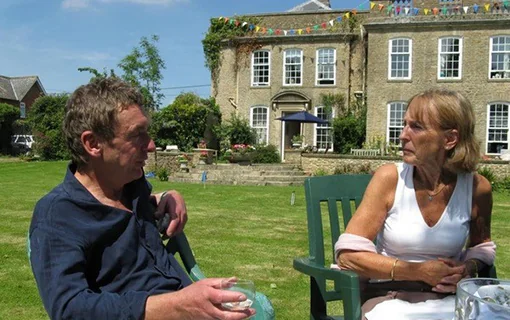
Carrying Norland's child-centred approach into life as a grandmother
Margaret’s love for ballet altered the course of her career, and she then became a writer for many international dance publications such as The Dancing Times and Dance Magazine. She worked as a researcher for a 1986 BBC documentary on the Bolshoi Ballet, Moscow’s internationally renowned classical ballet company and, in 1986, became assistant manager when the company was touring the UK later that year. “My Norland training came in so useful again when looking after 90 wonderful, energetic ballet dancers!” In 2010, Margaret published her own book Carlos Acosta: The Reluctant Dancer (Arcadia Books) after first meeting the now famous ballet dancer in Cuba in 1990 and closely following his career thereafter.
Today, Margaret lives in Surrey and her training is continuing in yet another stage—that of being a grandmother, with an 8-year-old granddaughter in America and a 7-year-old grandson who lives just doors away from her.
In her rich and varied career, Margaret has been inspired by, and has put into practice, Norland’s motto ‘Love Never Faileth’ in all the jobs she has had. Today, nearly 70 years later, she remains so grateful for that initial article, ‘N is for Nanny’ which set her on her incredible path as a Norlander.
Read our latest news and blogs
